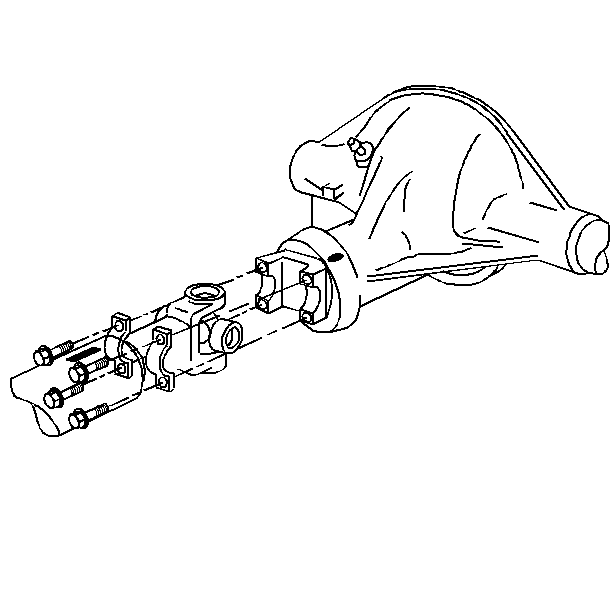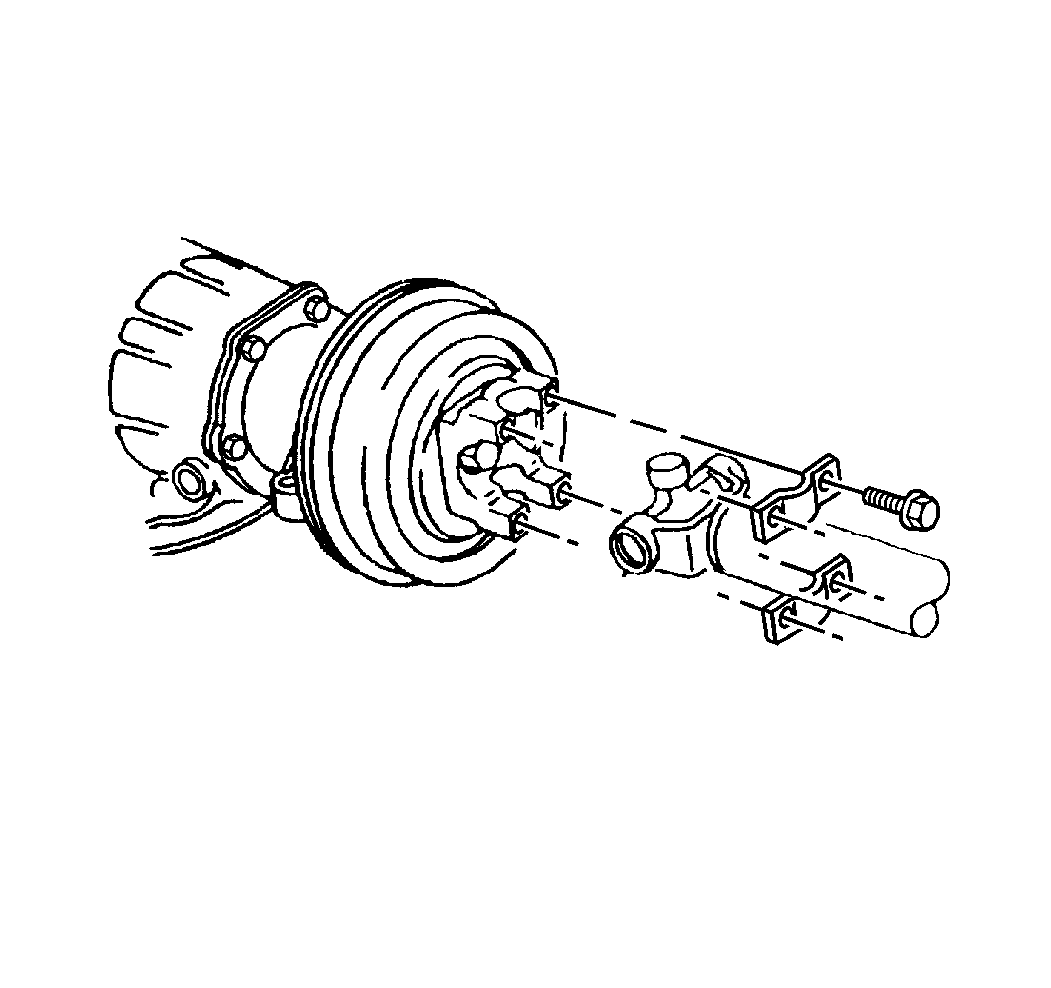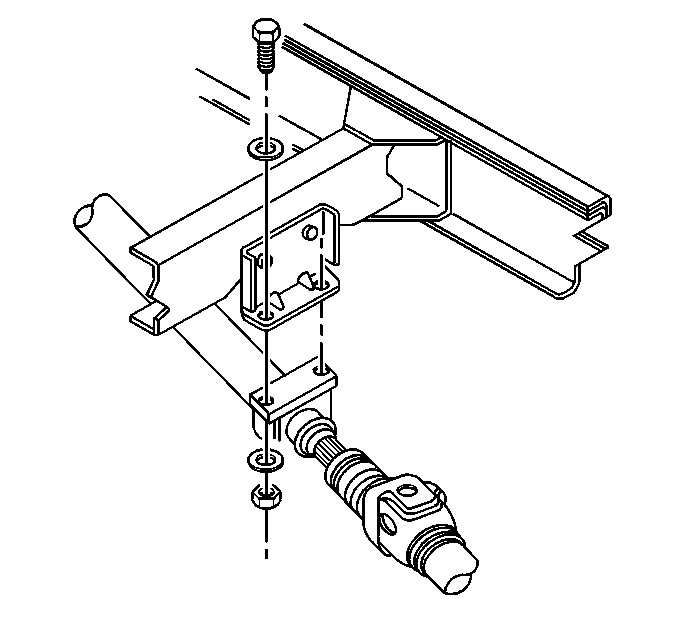Removal Procedure

- Raise the vehicle and
support with safety stands. Refer to
Lifting and Jacking the Vehicle
in General Information.
Important: You must observe and accurately reference mark the positions of all
driveline components relative to the propeller shaft and axles prior to disassembly.
These components include the following:
All components must be reassembled in the exact relationship to
each other as they were when removed. In addition you must follow published
specifications and torque values as well as any measurements made prior
to disassembly. Reference mark the rear propeller shaft to the pinion
flange and to the front propeller shaft, then reference mark the front
shaft to the yoke at the transmission.
- Remove the bolts at the pinion flange.
- Remove the retainers at the pinion flange.
- Loosen the cap retainer.
Important: Do not pound on the original propeller shaft yoke ears. The plastic
injection joints may fracture. Do not or place any tool between a yoke
and a universal joint. Tape the bearing cups onto the yoke and universal
joints in order to prevent loss of the needle bearings. Slide the
propeller shaft forward in order to disengage the rear universal joint
from the pinion flange. Then slide the shaft rearward off the front
propeller shaft splines.
- Remove the rear propeller shaft.

- Remove the bolts at the
yoke.
- Remove the retainers at the yoke.

- Remove the nuts from the
bolts that attach the center bearing support to the front propeller shaft.
- Remove the bolts and washers.
- Remove the front propeller shaft with the center bearing support
from the vehicle.
- Clean all parts with an approved solvent.
- Inspect the outer diameter of the transmission yoke for burrs.
- Inspect for proper installation and uniform seating of the bearing
cups.
- Inspect for twisted slip yoke splines or an incorrect universal
joint.
Installation Procedure

Notice: Use the correct fastener in the correct location. Replacement fasteners
must be the correct part number for that application. Fasteners requiring
replacement or fasteners requiring the use of thread locking compound or sealant
are identified in the service procedure. Do not use paints, lubricants, or
corrosion inhibitors on fasteners or fastener joint surfaces unless specified.
These coatings affect fastener torque and joint clamping force and may damage
the fastener. Use the correct tightening sequence and specifications when
installing fasteners in order to avoid damage to parts and systems.
- Install the center
bearing support to the crossmember to the following components:
Tighten
Tighten the center bearing support bolts to 53 N·m (39 lb ft).

- Line up the reference
marks and install the front propeller shaft up against the yoke.
Tighten
| • | Tighten the bolts (at the axle end) to 20 N·m (15 lb ft)
(without the transmission mounted drum parking brake). |
| • | Tighten the bolts (at the axle end) to 28 N·m (21 lb ft)
(with the transmission mounted drum parking brake). |

- Install the rear propeller
shaft. Line up the reference marks.
| • | Slide the front end of the shaft onto the splines of the front
shaft. |
| • | Slide the front end of the shaft far enough forward in order to
allow the rear universal joint to engage the pinion flange. |
- Set the seal in place and secure the cap retainer onto the rear
shaft.
- Install the retainers.
- Install the bolts.
Tighten
| • | Tighten the bolts (at the axle end) to 20 N·m (15 lb ft)
(without the transmission mounted drum parking brake). |
| • | Tighten the bolts (at the axle end) to 44 N·m (33 lb ft)
(with the transmission mounted drum parking brake). |
- Remove the safety stands and lower the vehicle.






